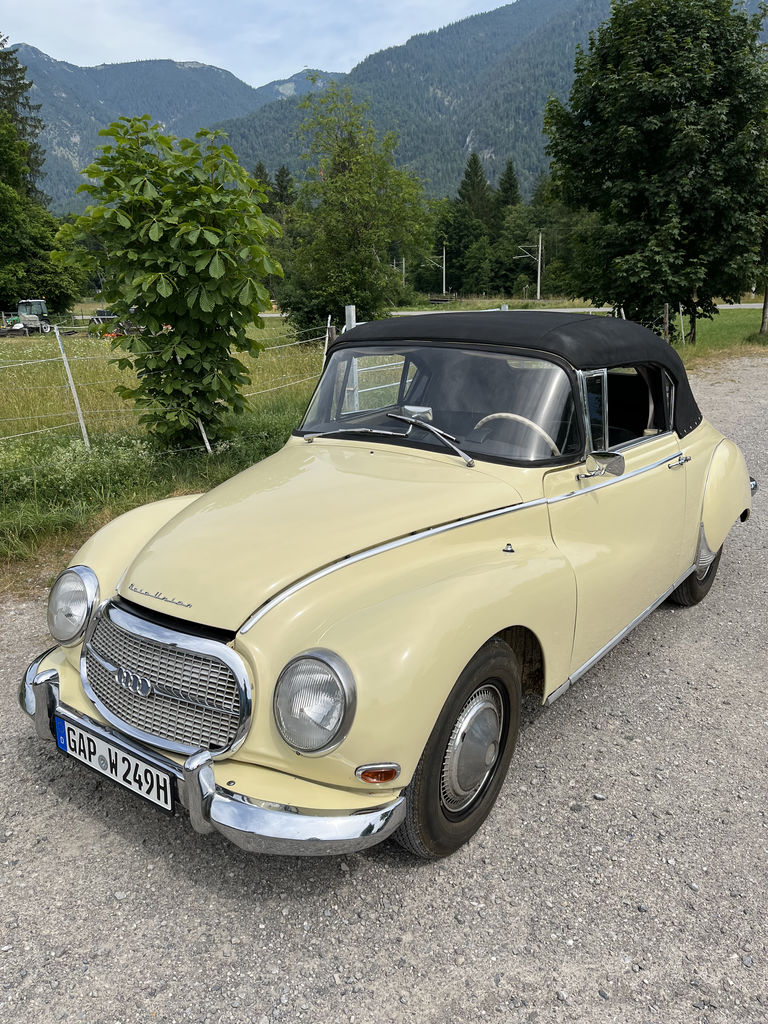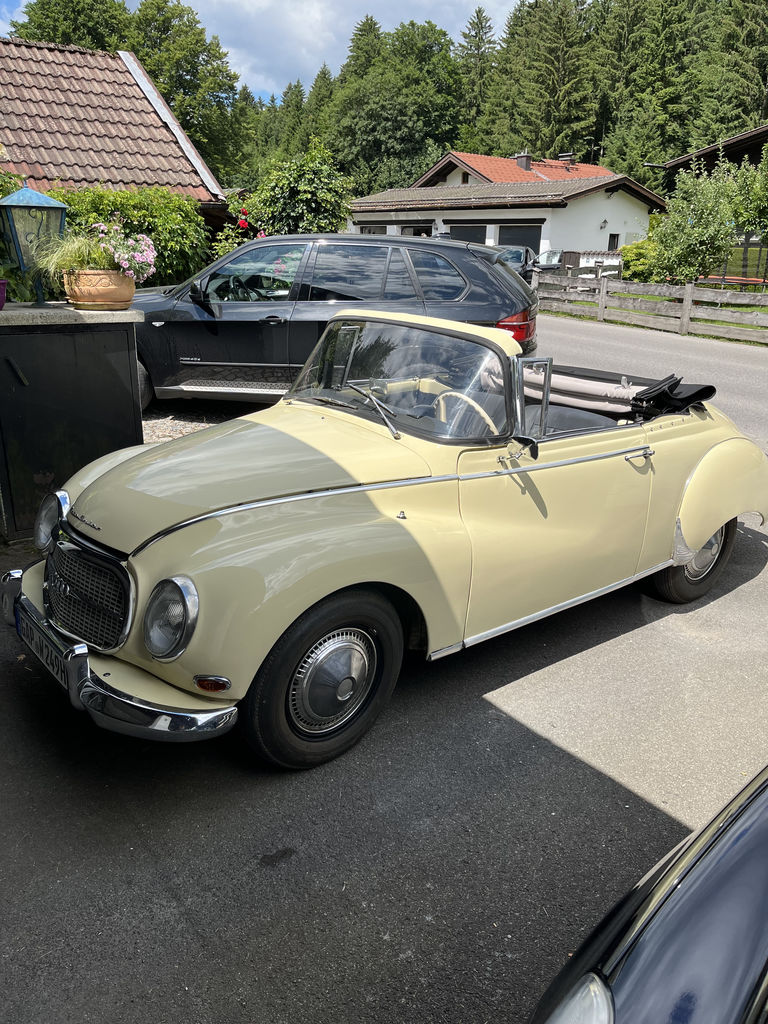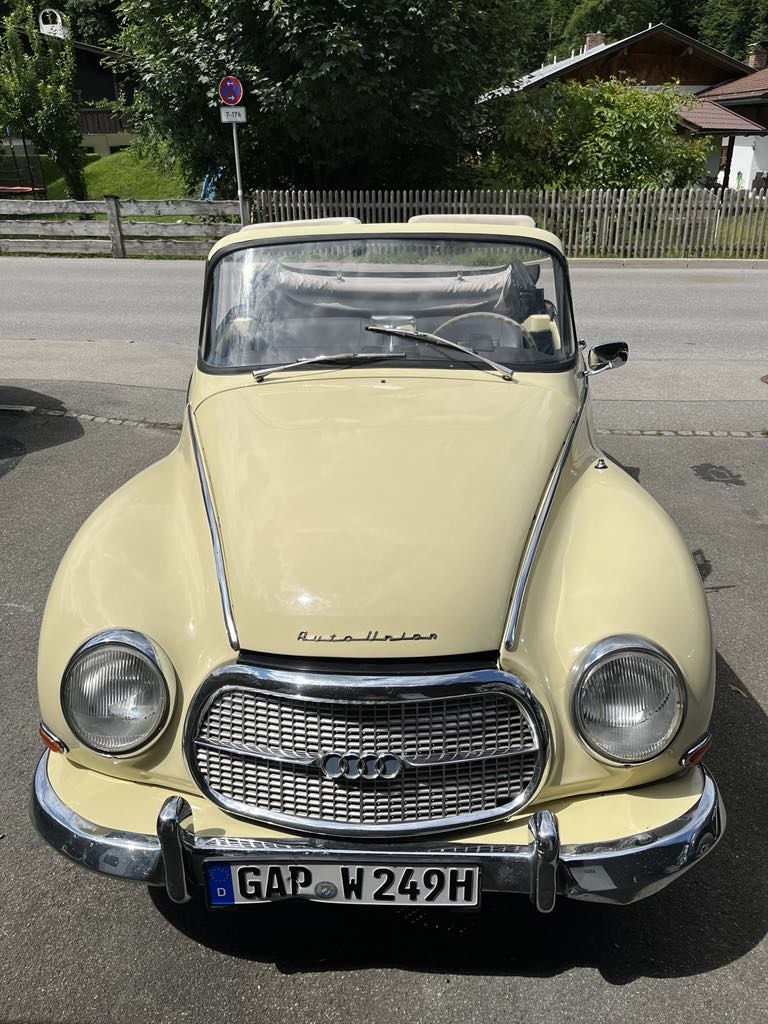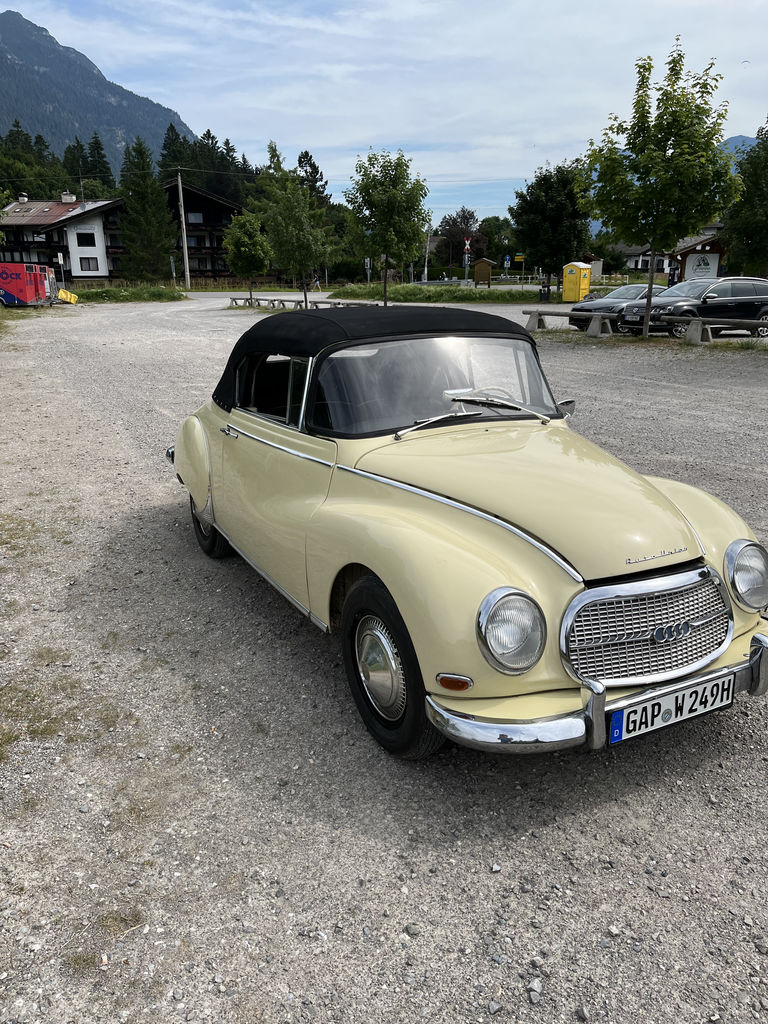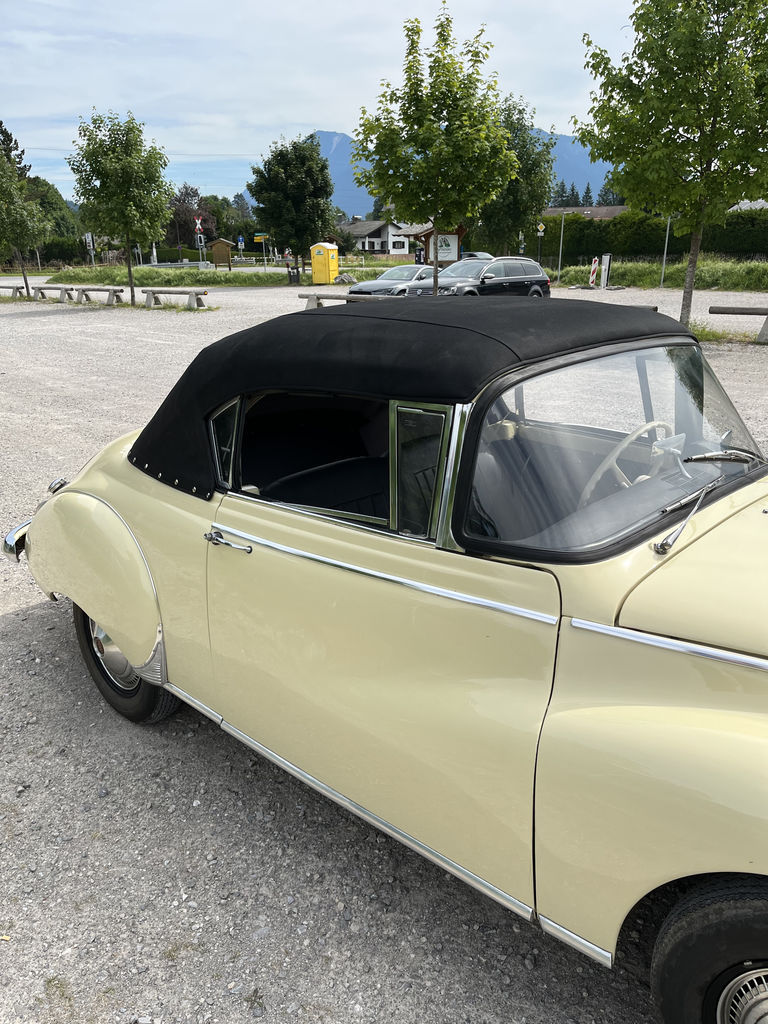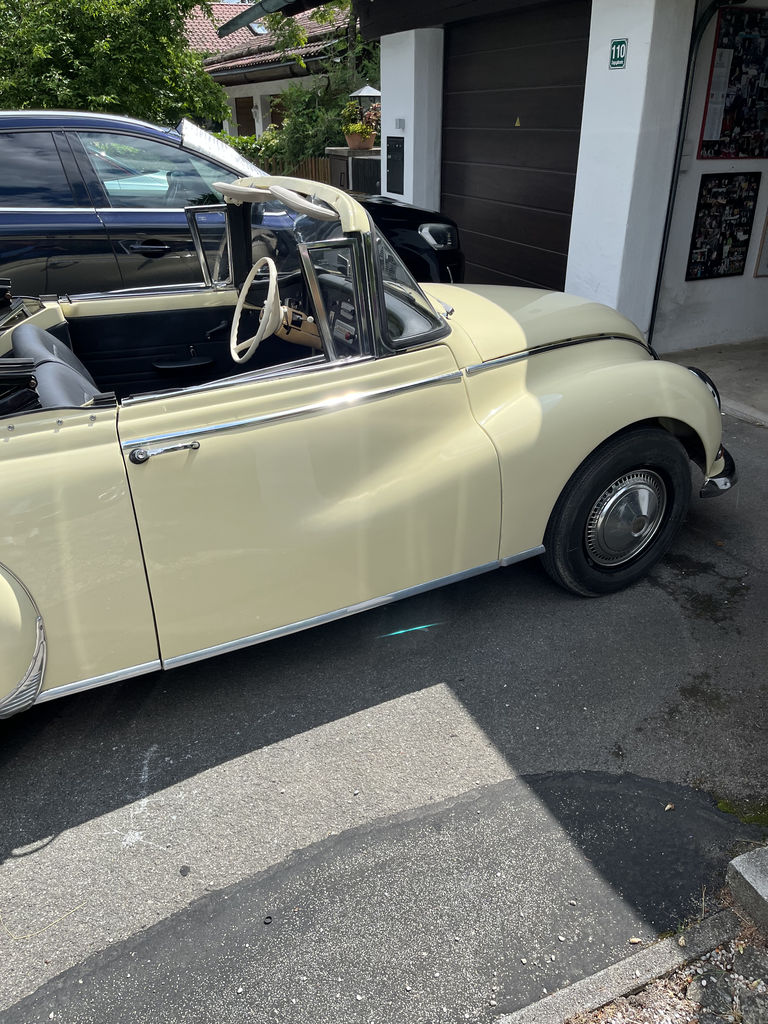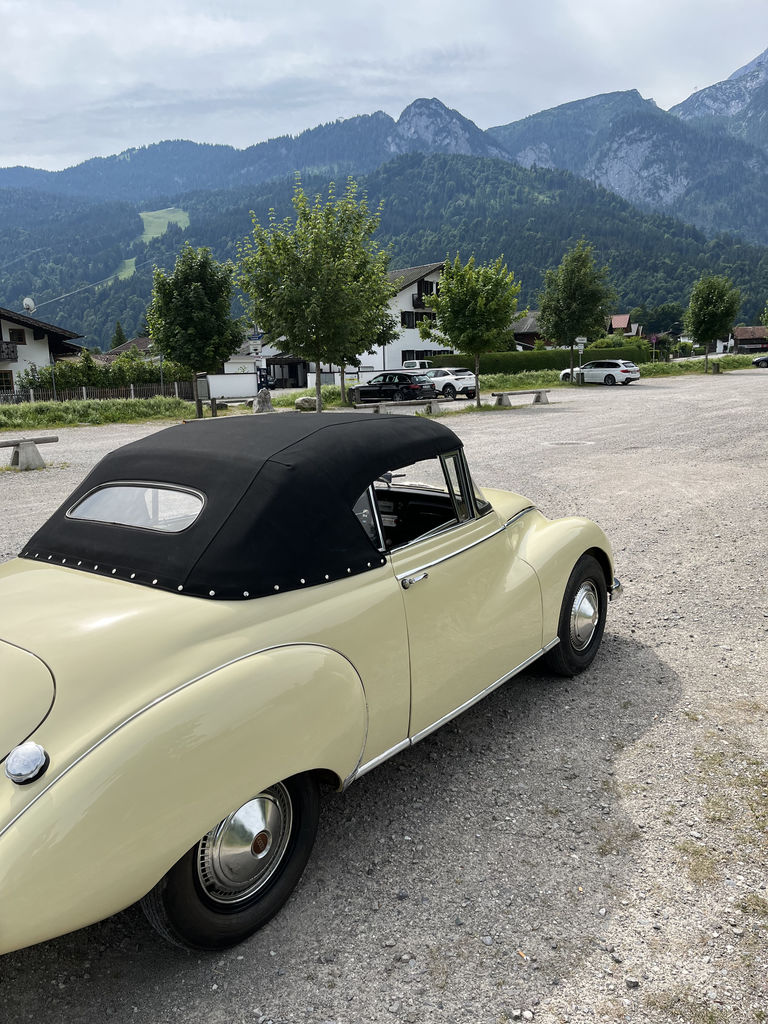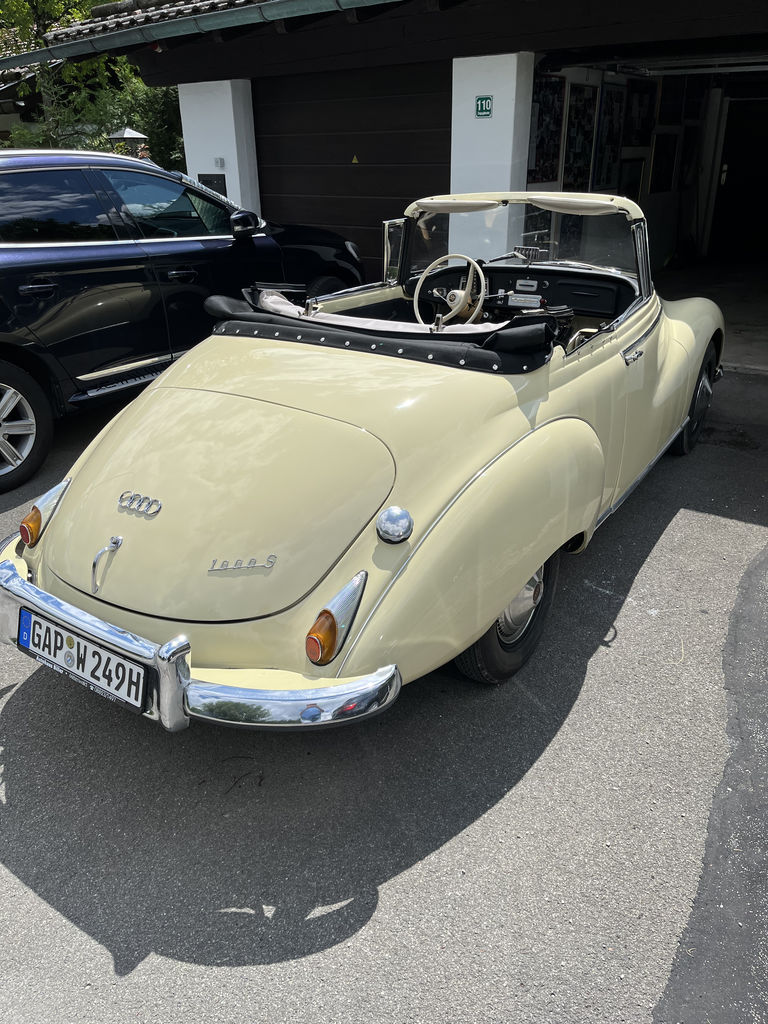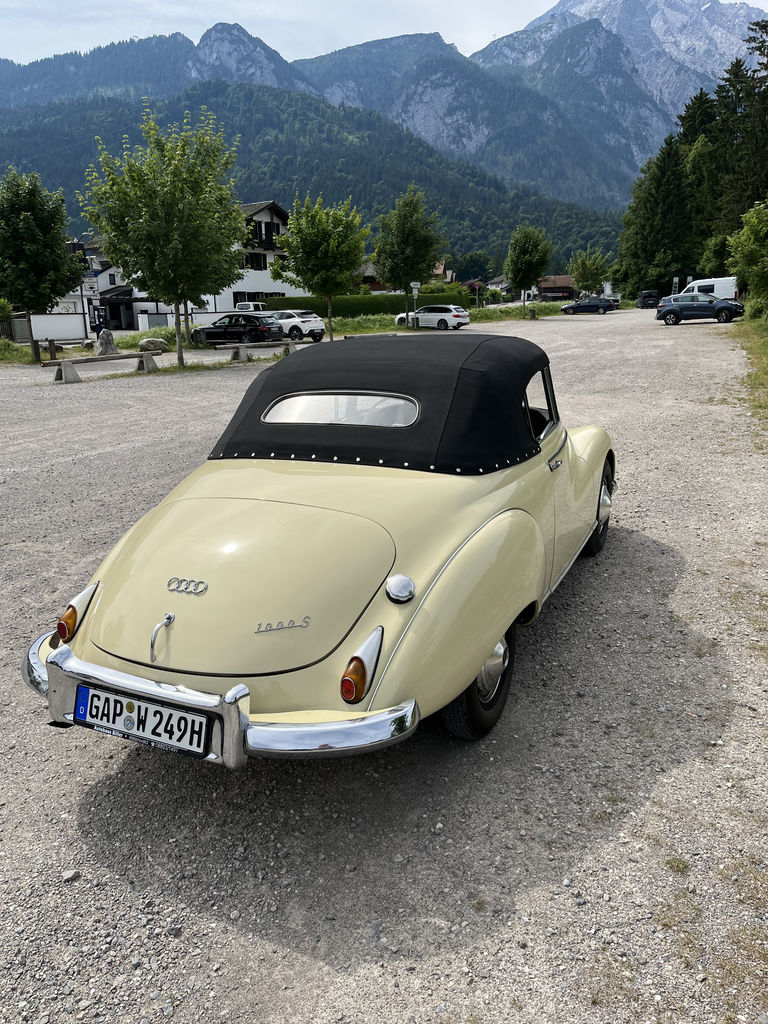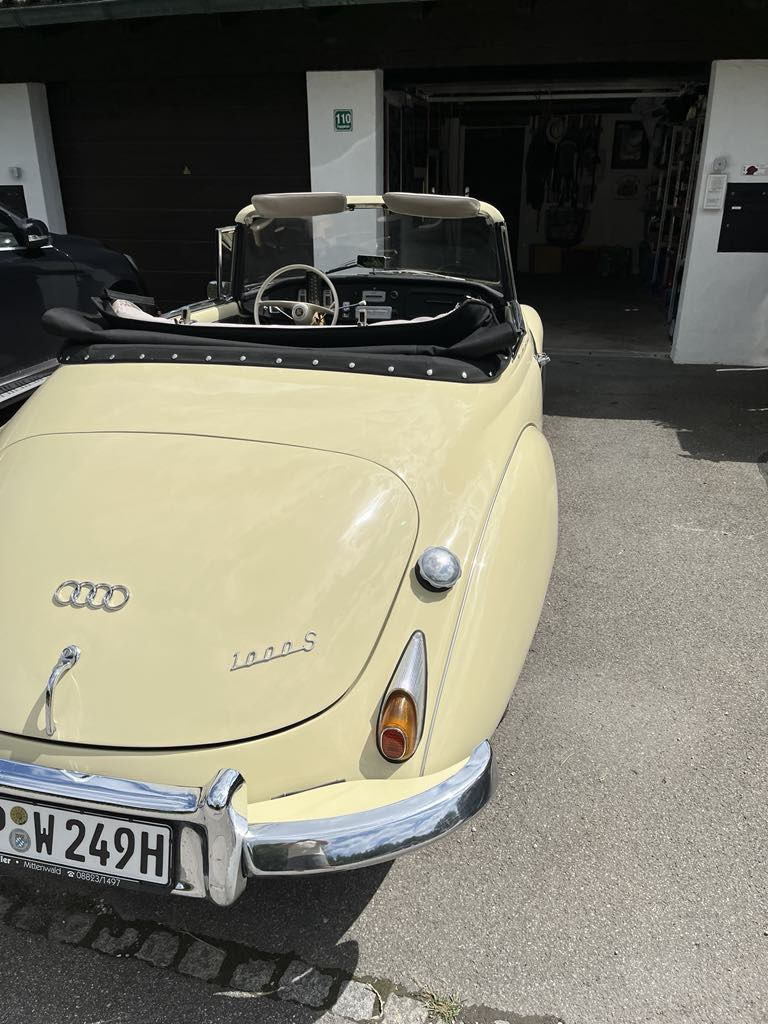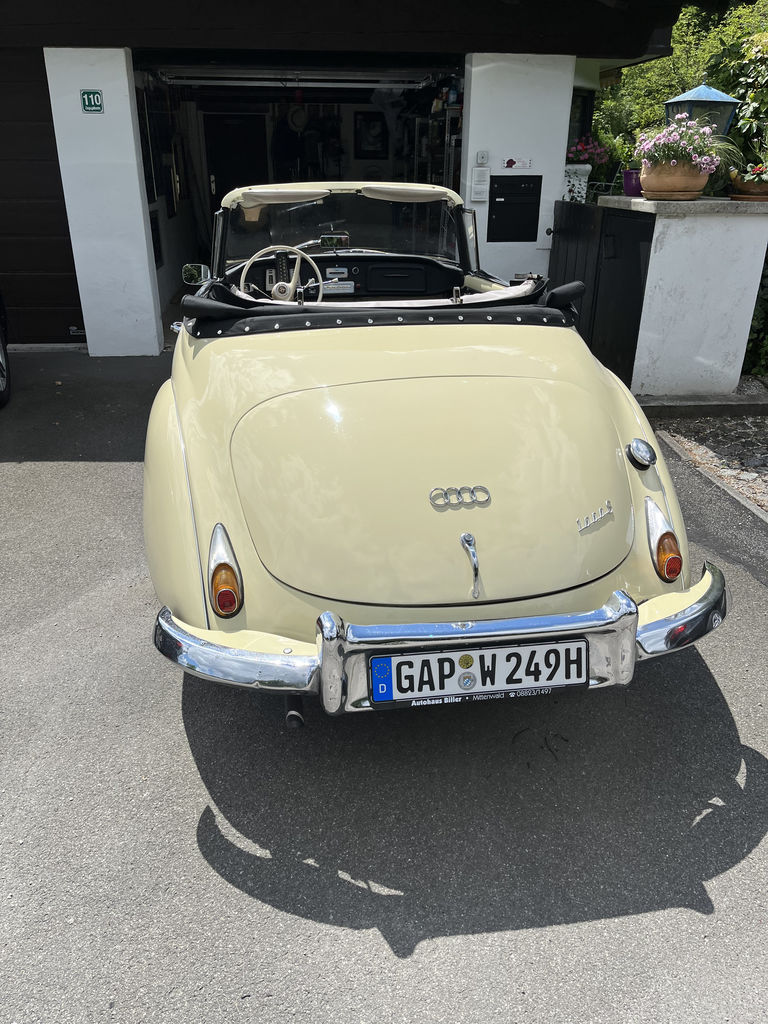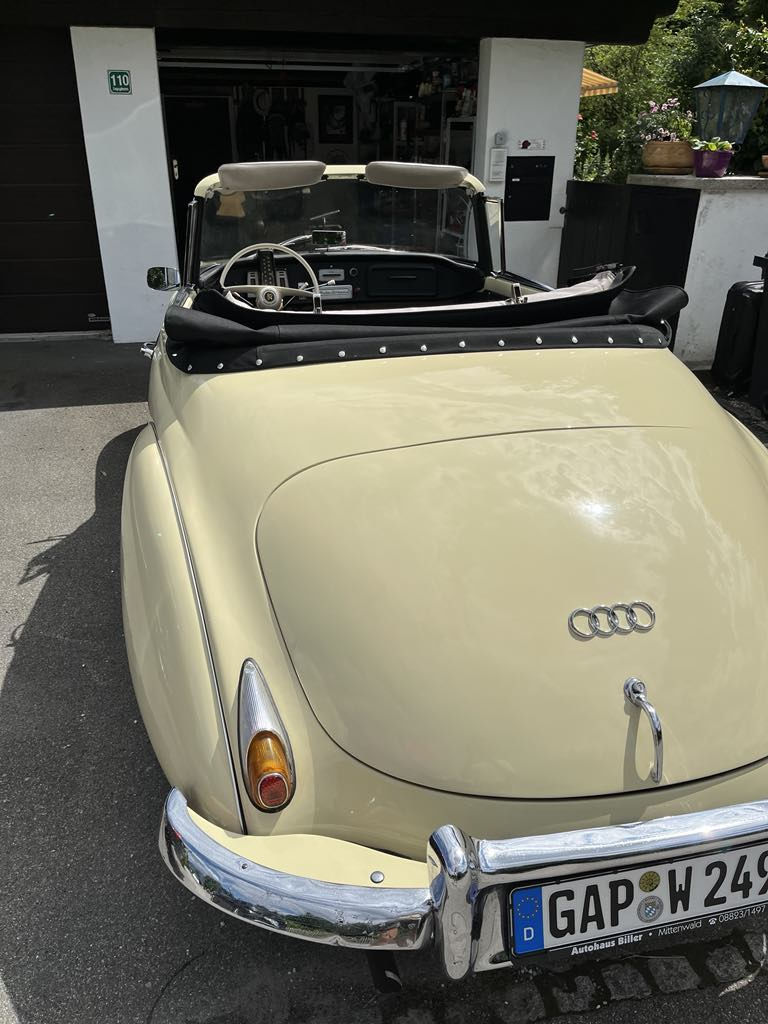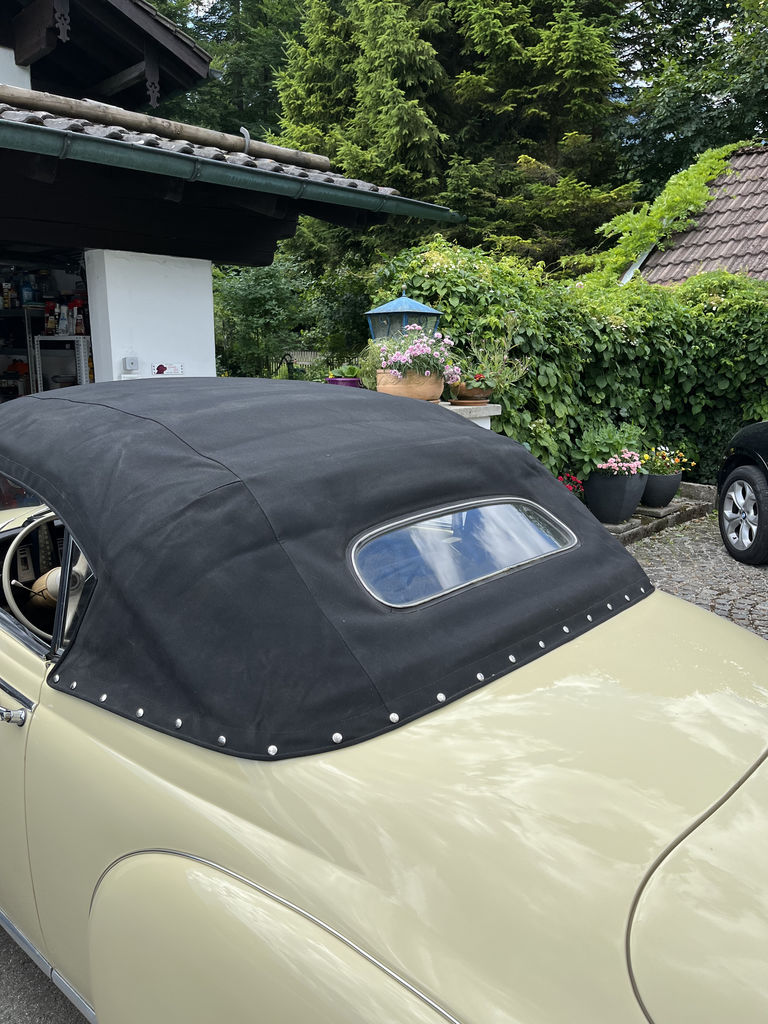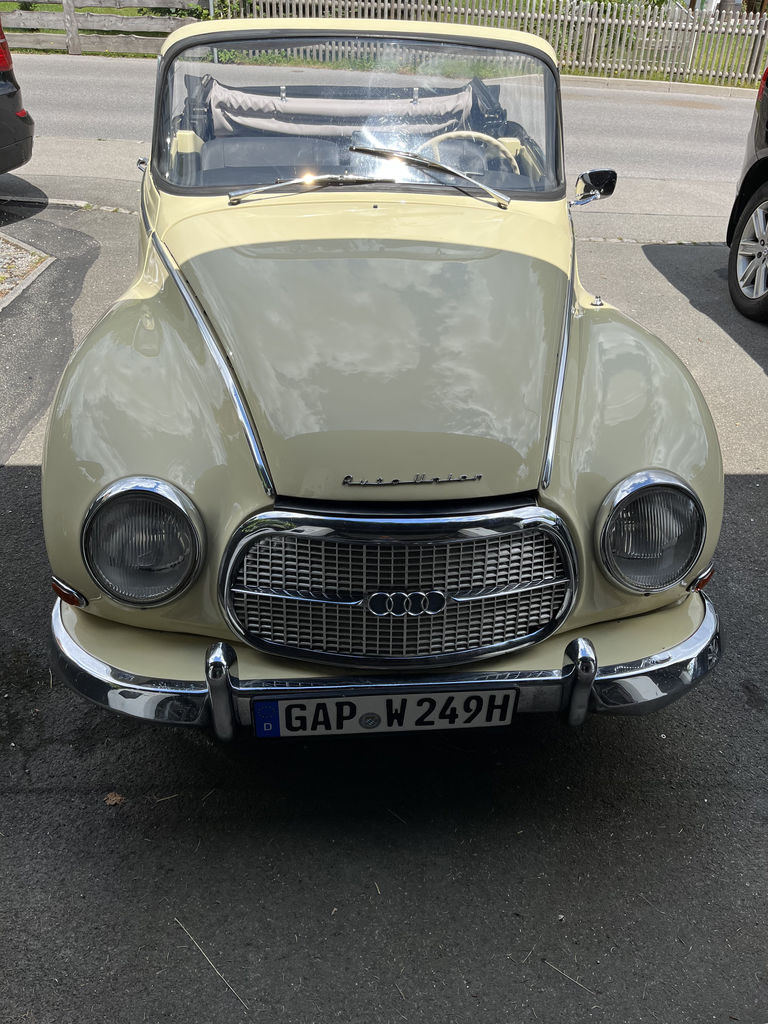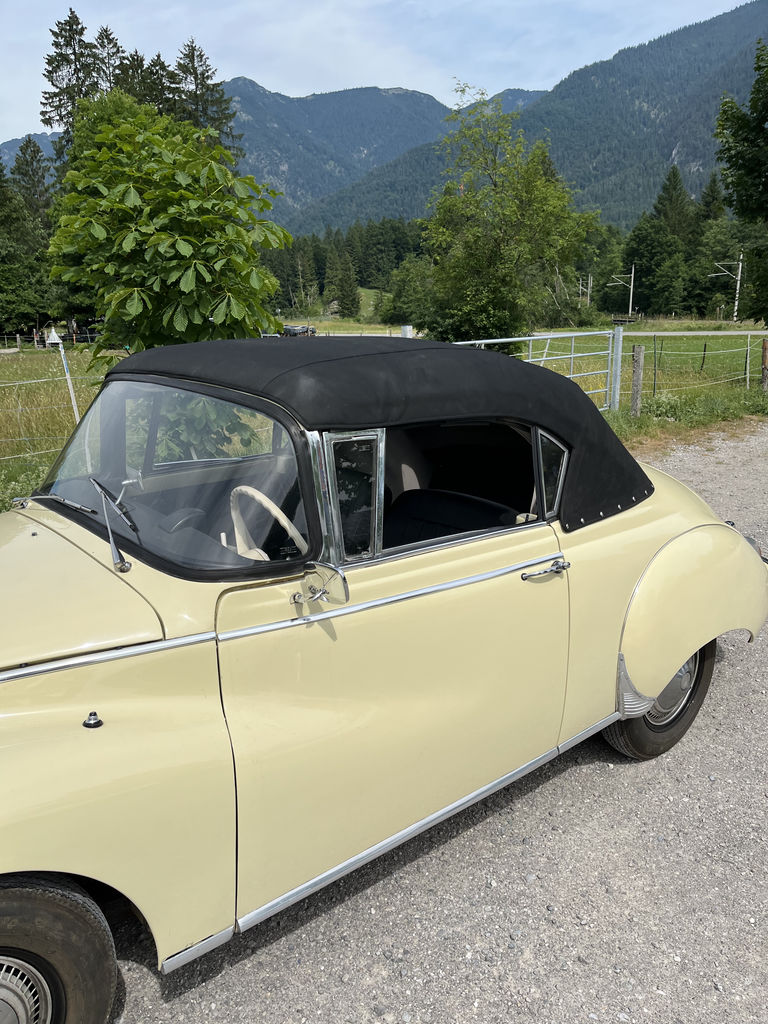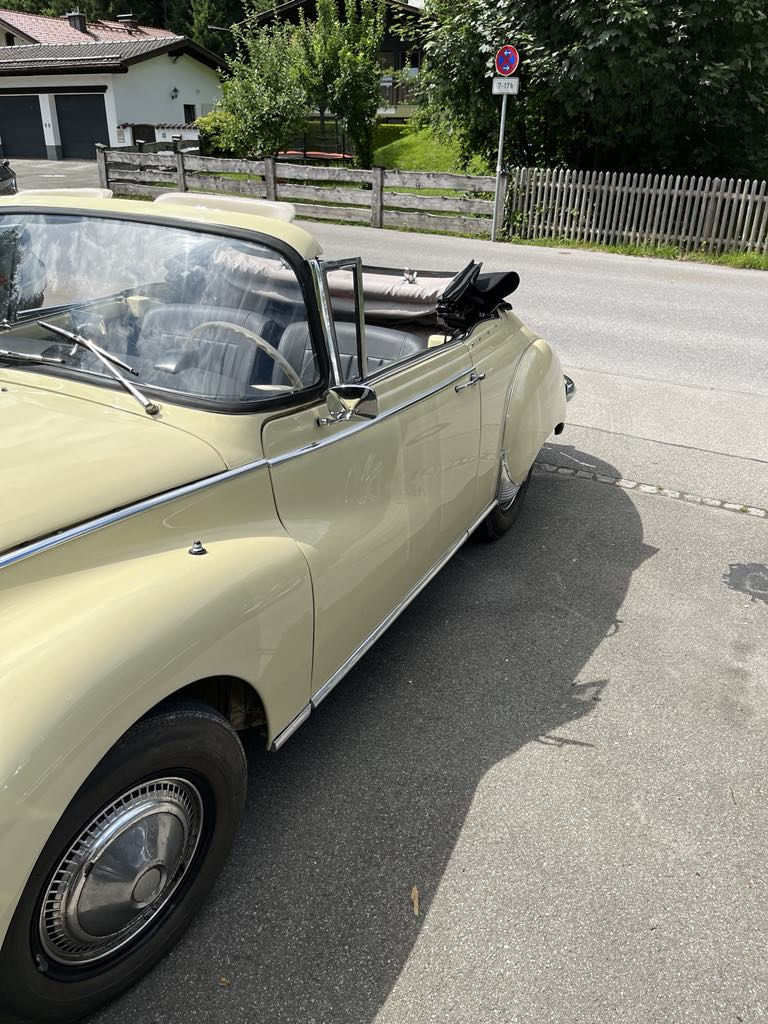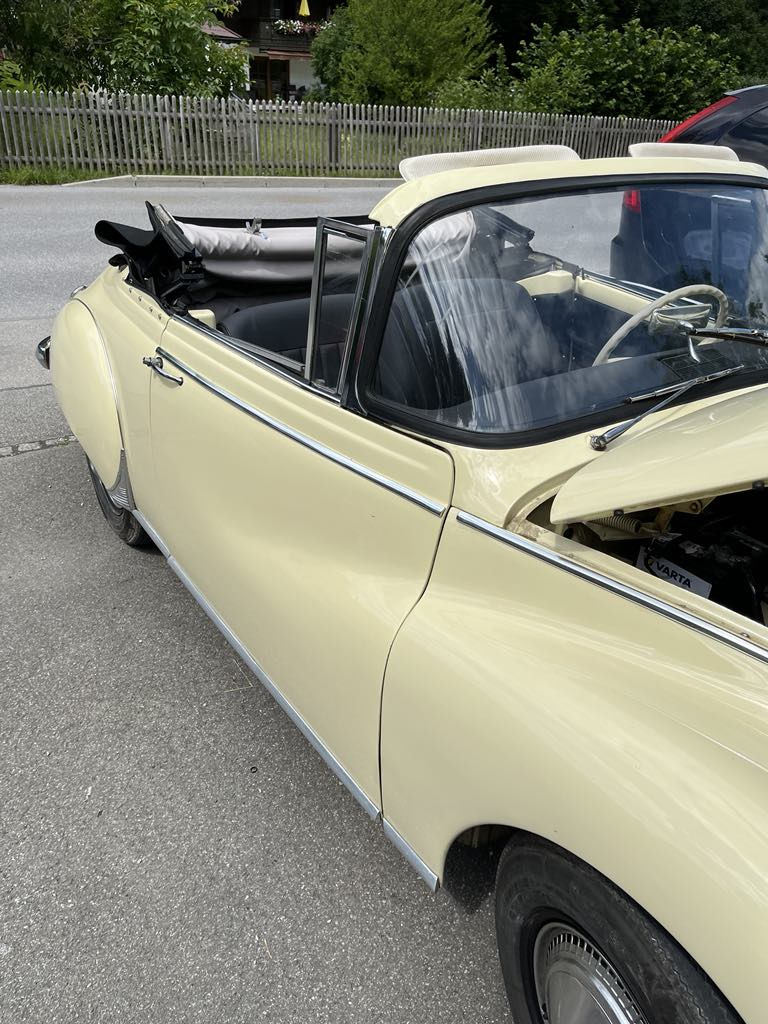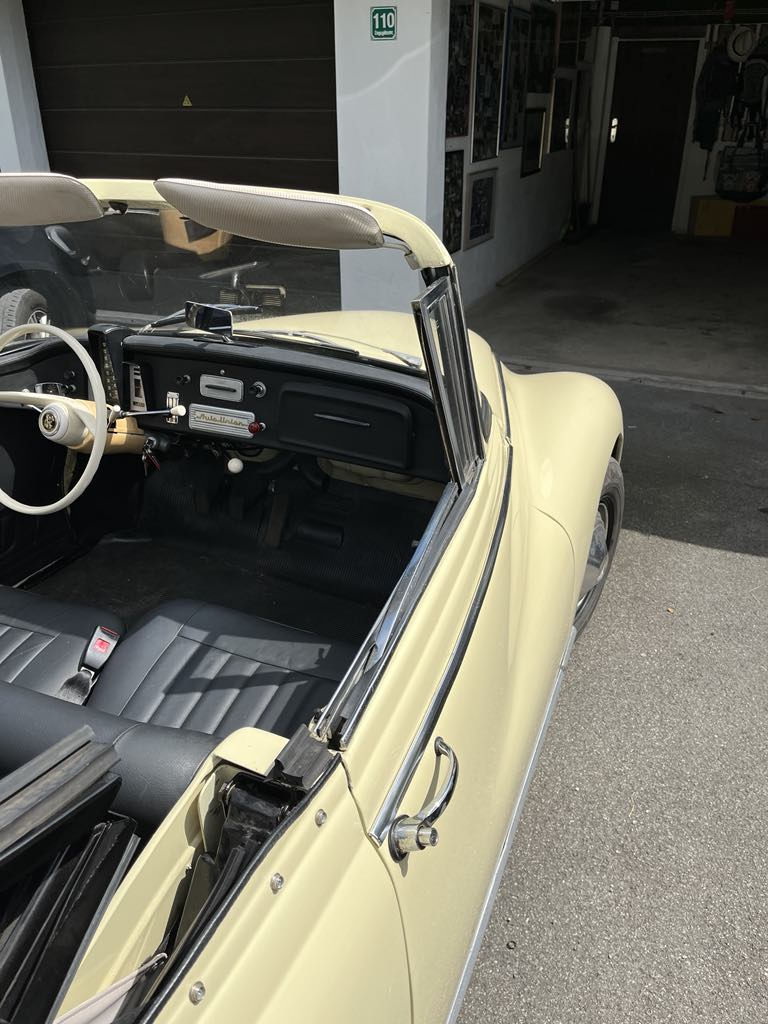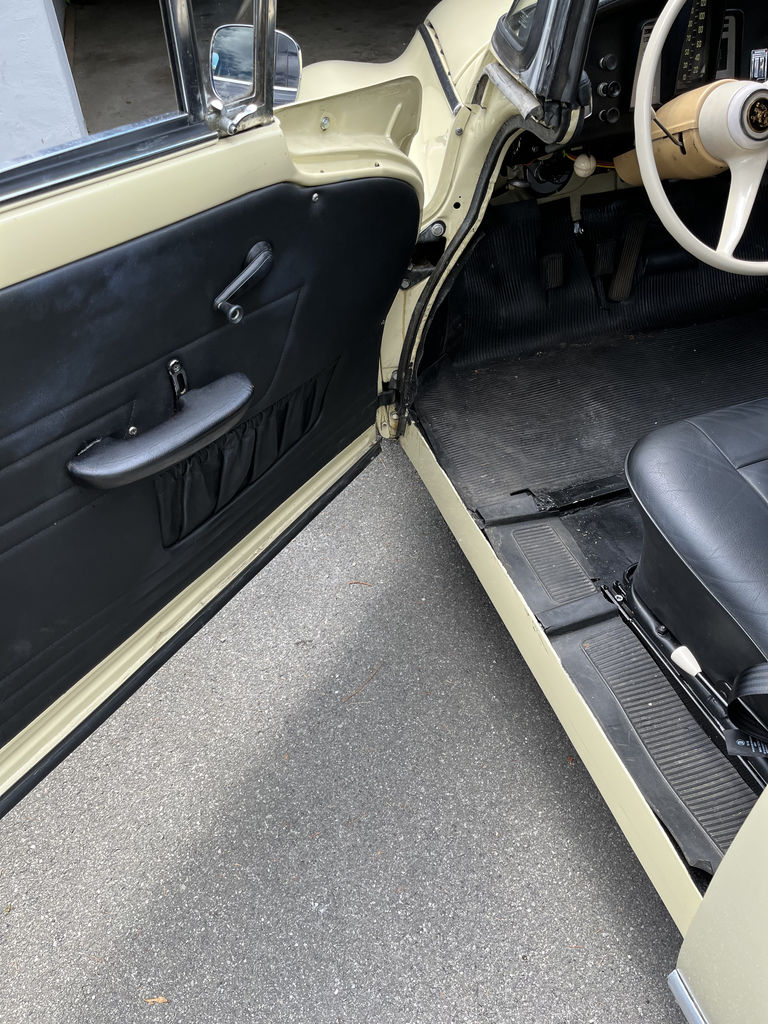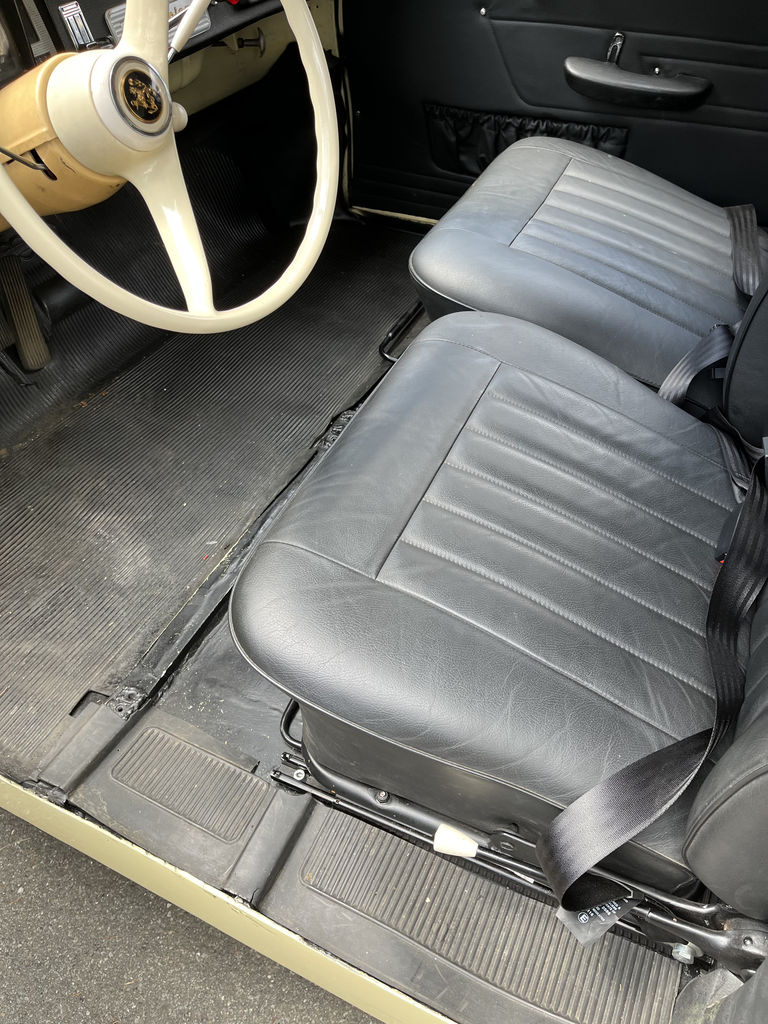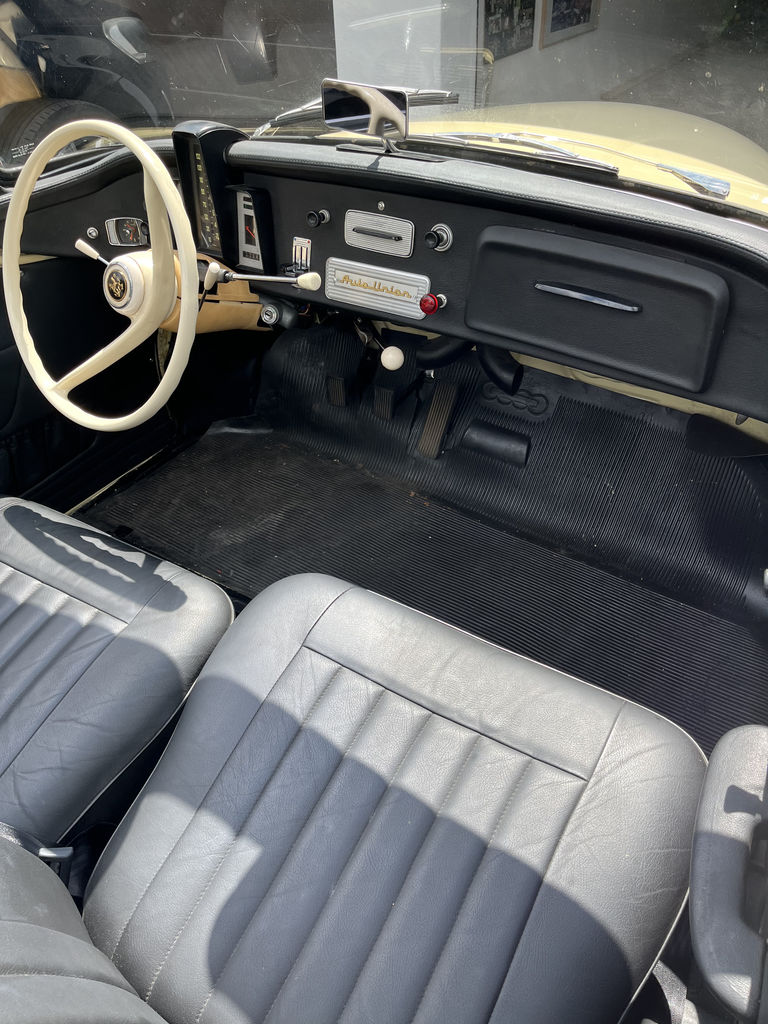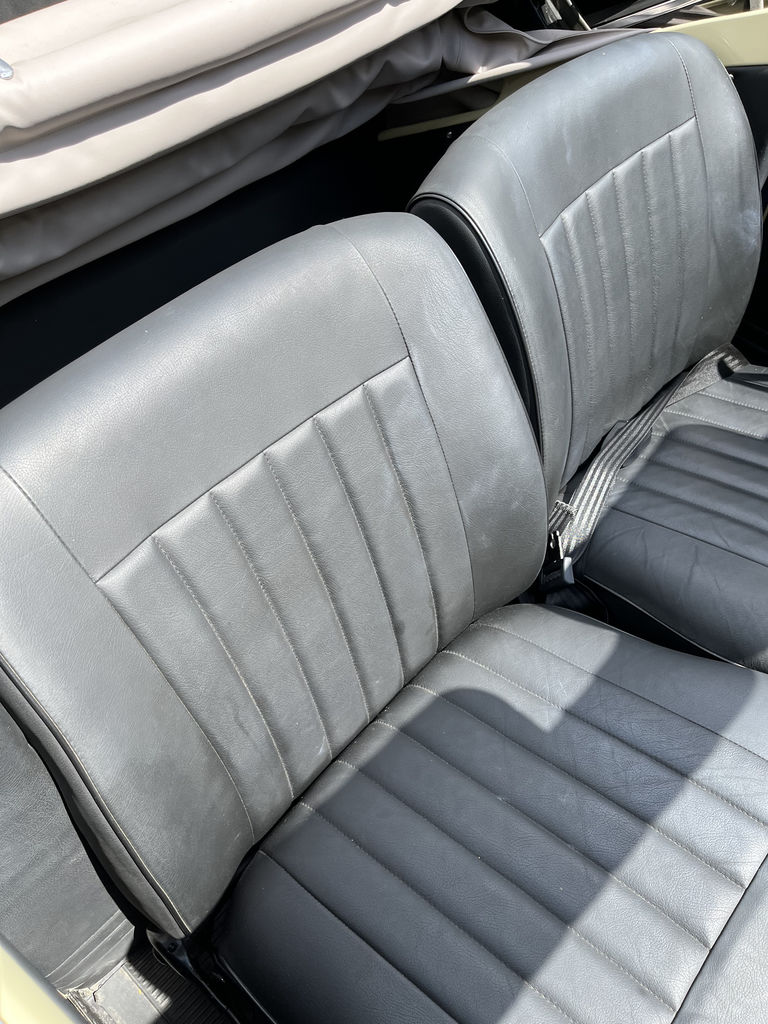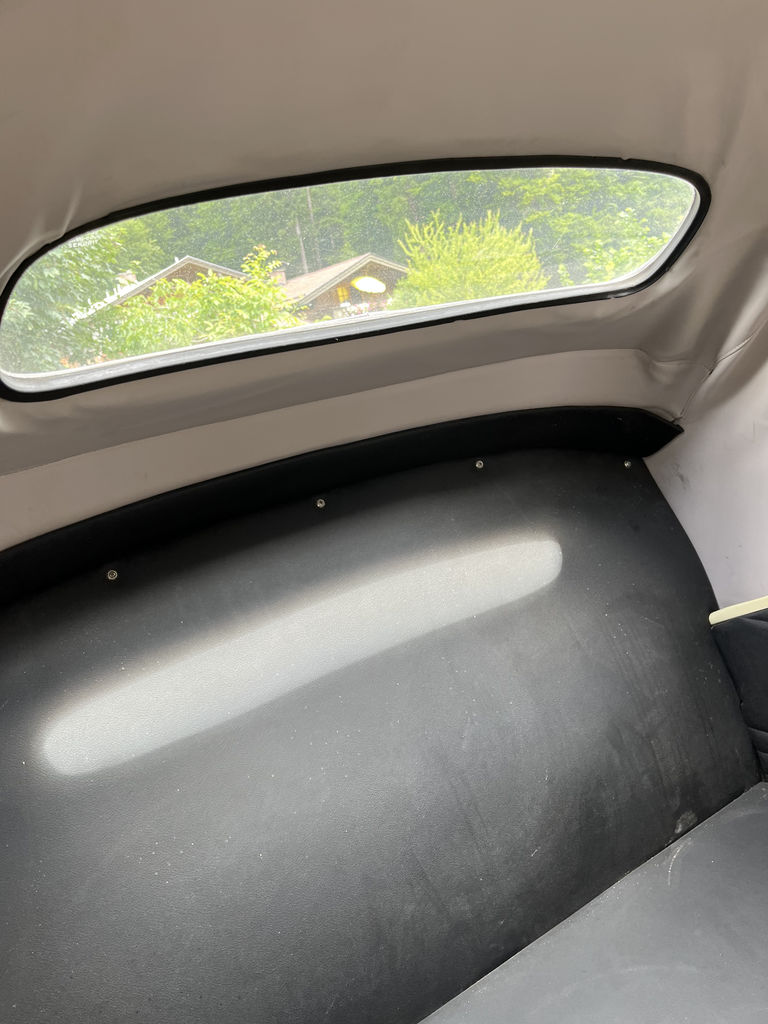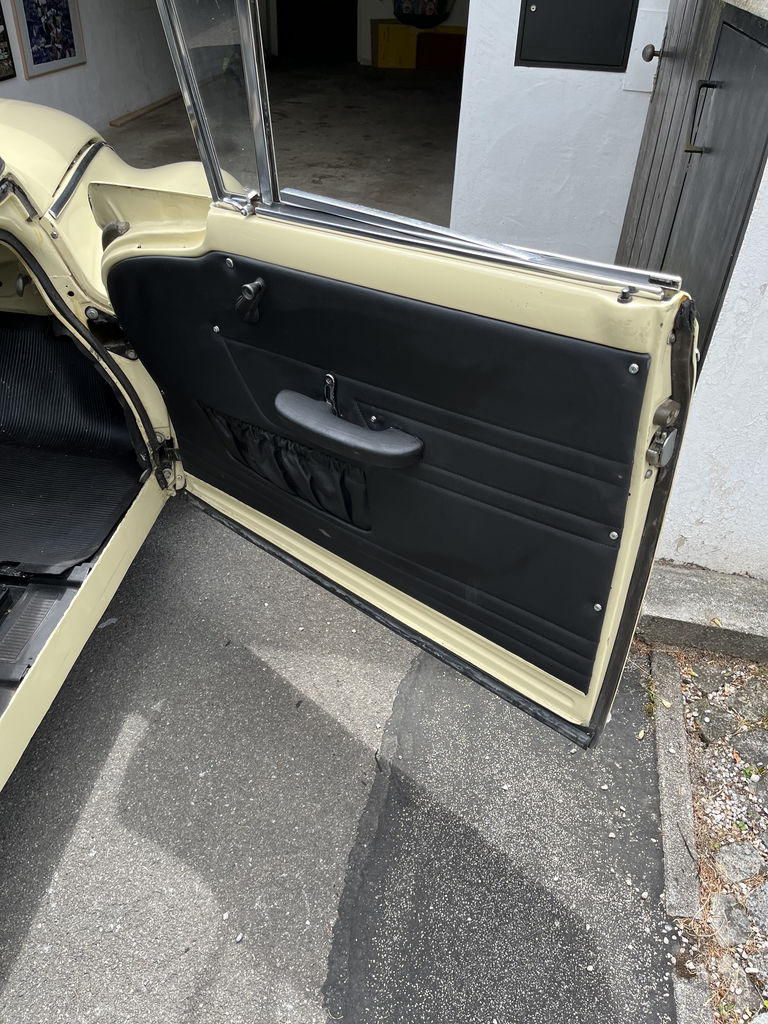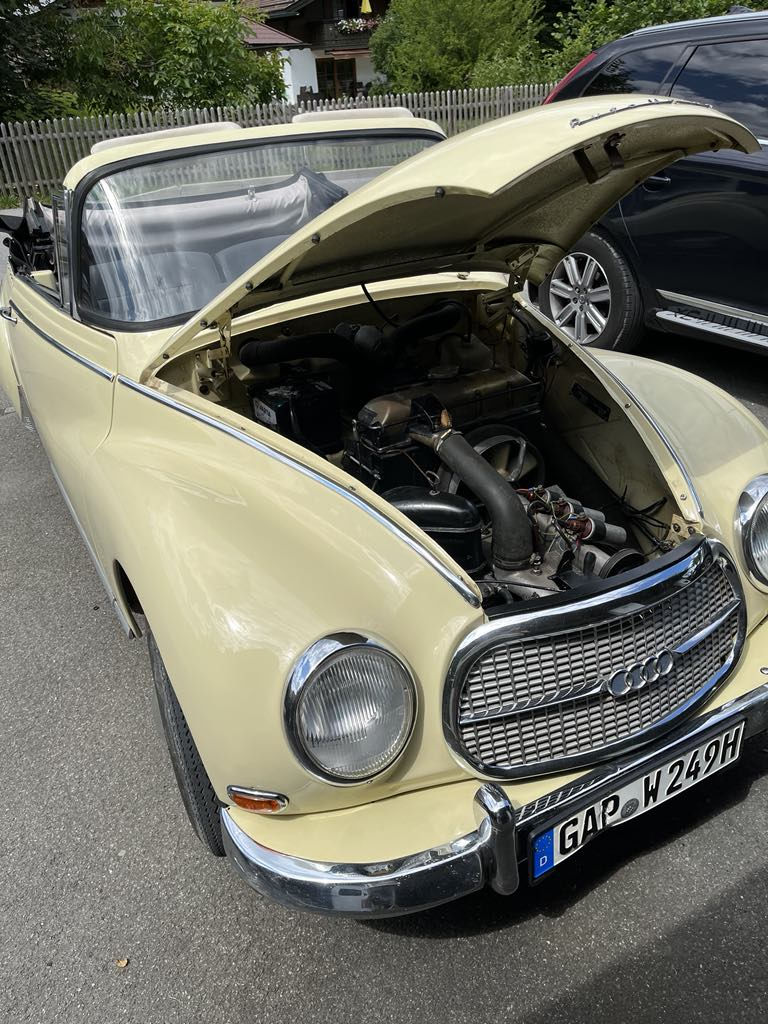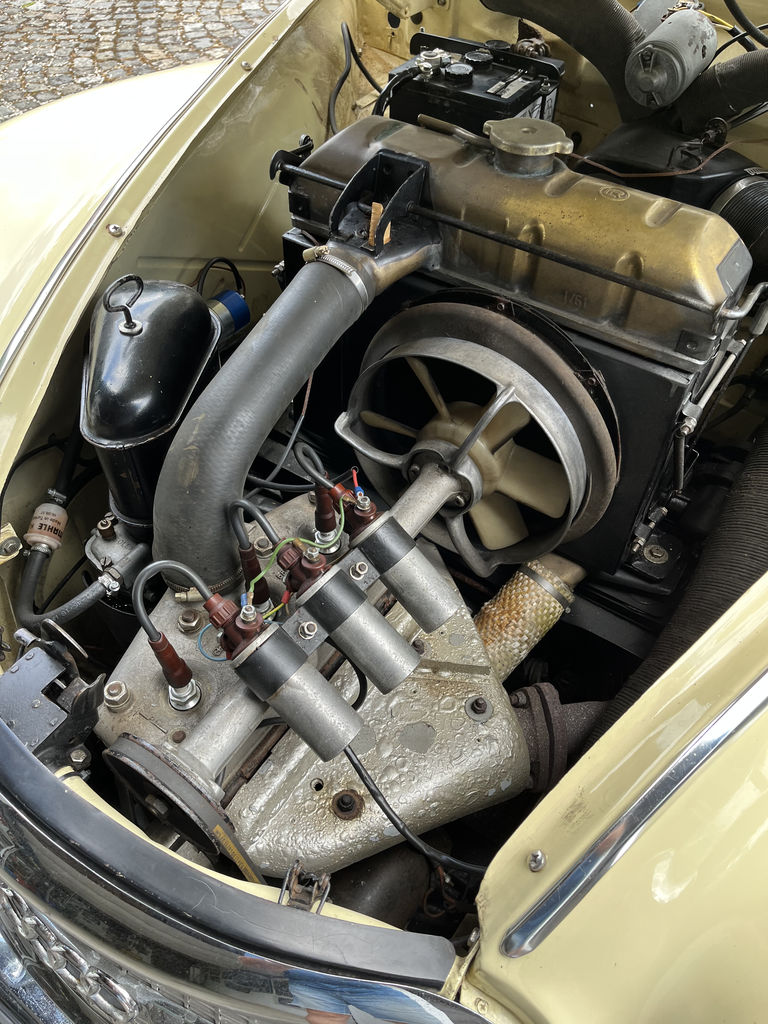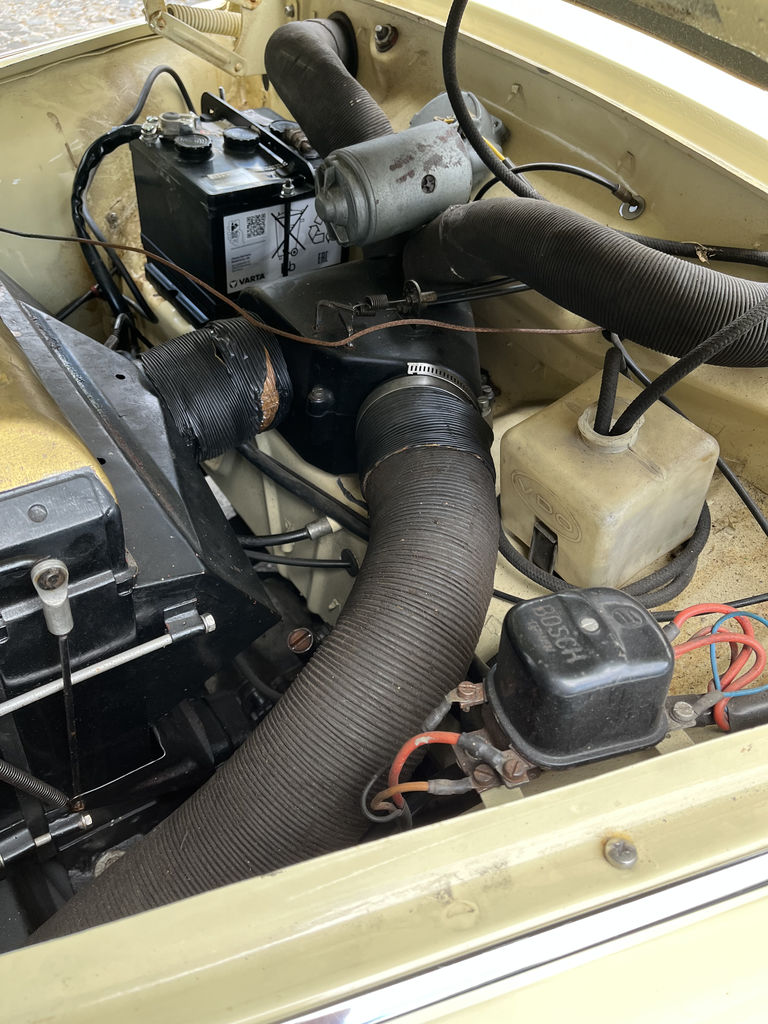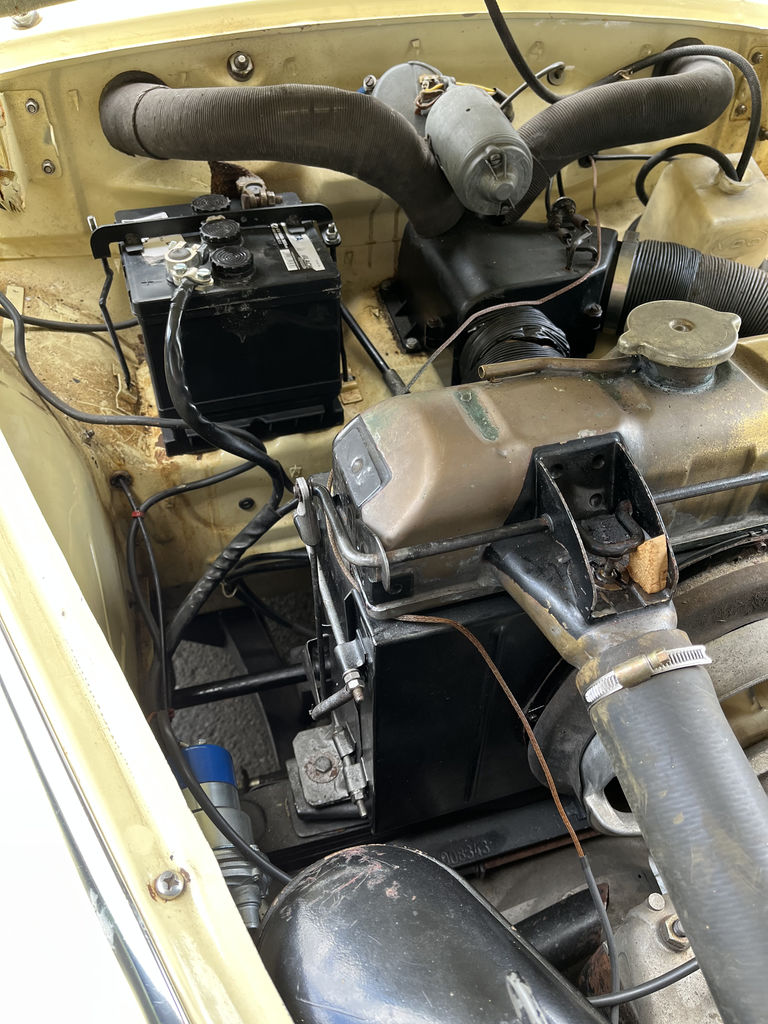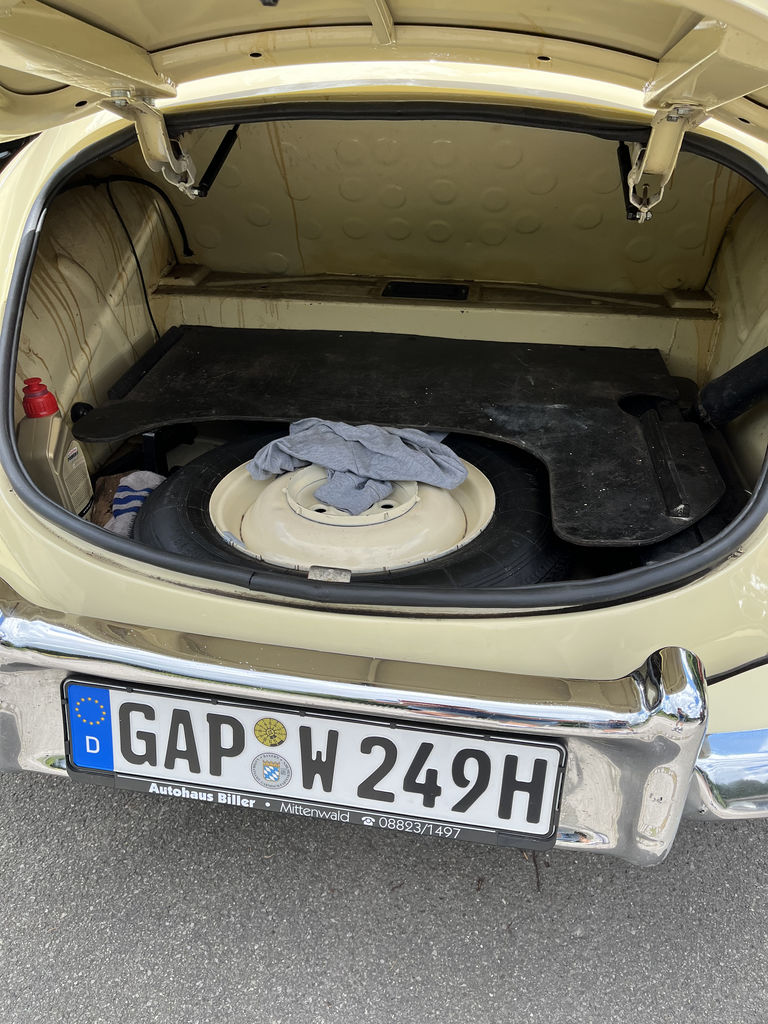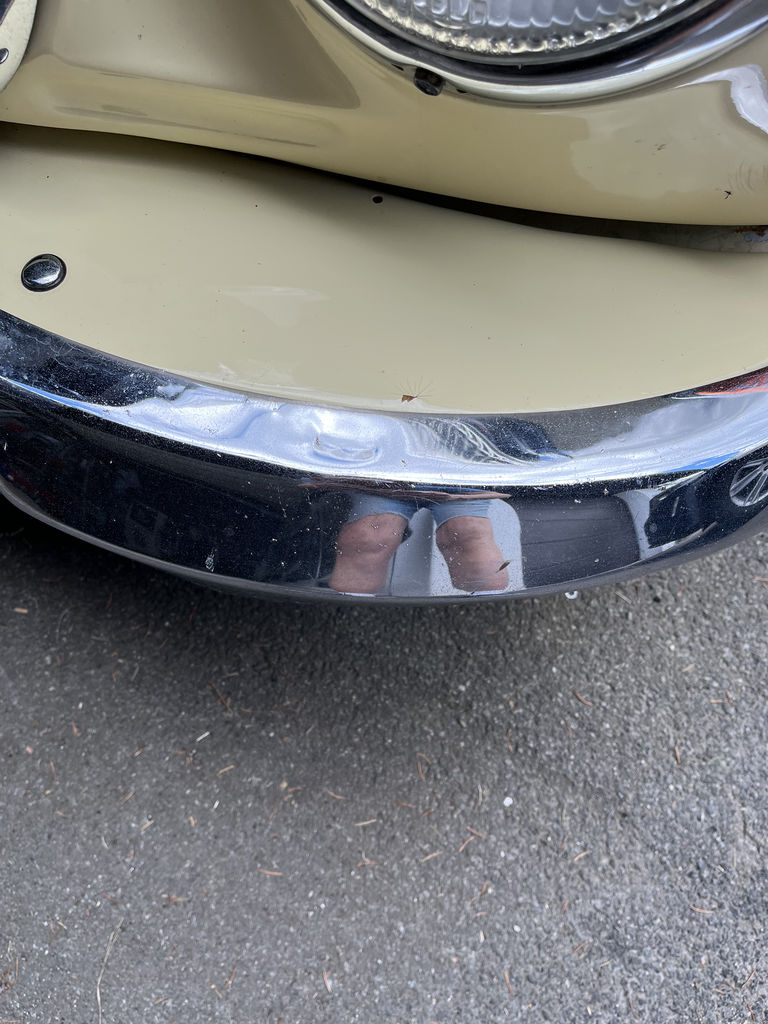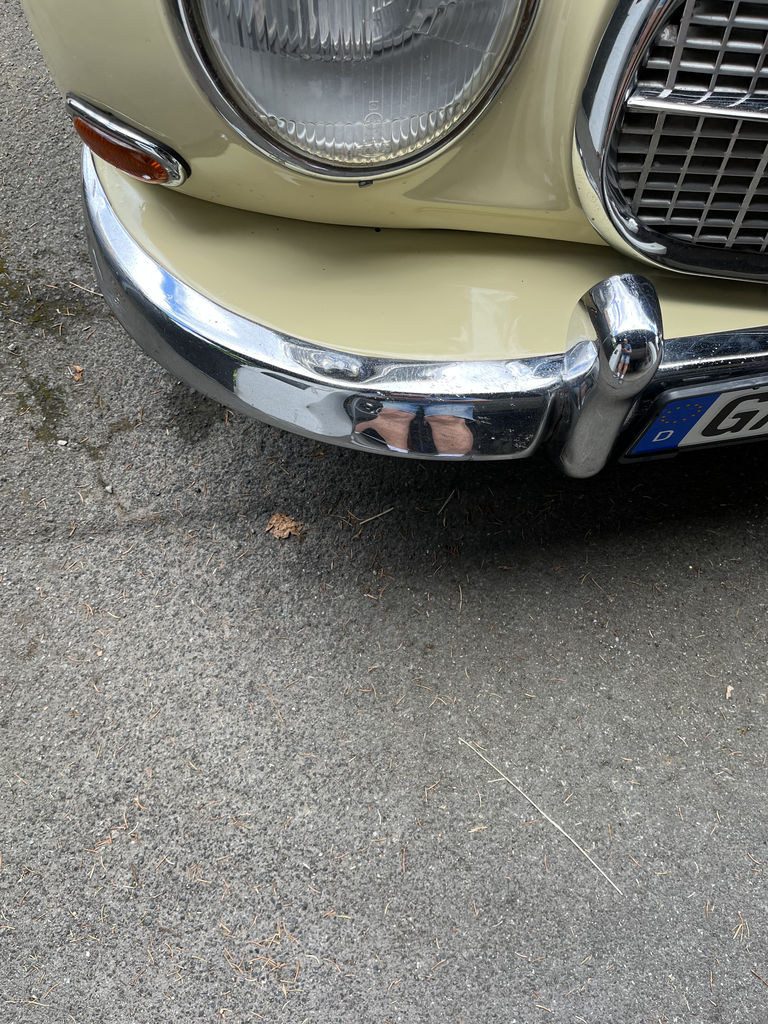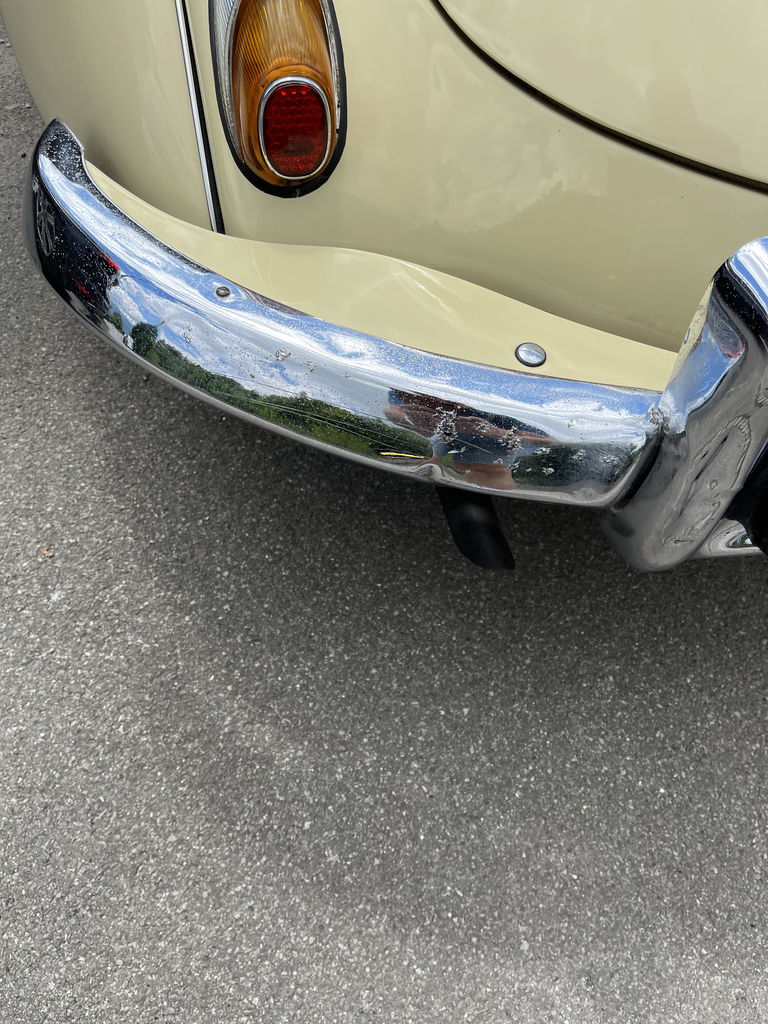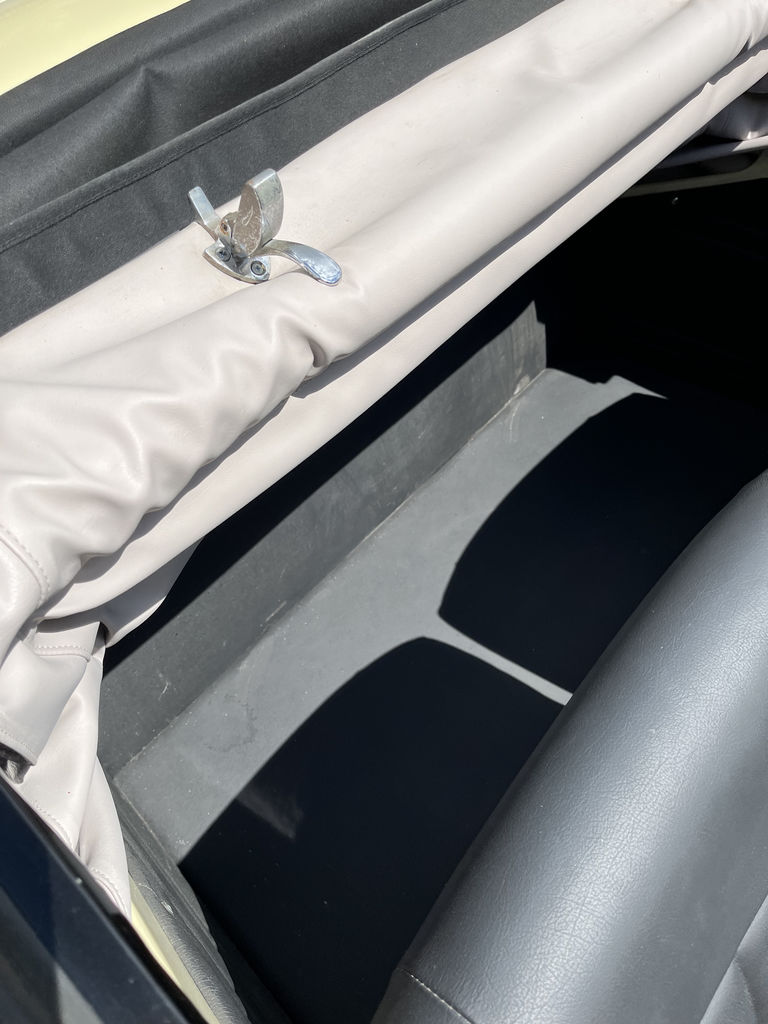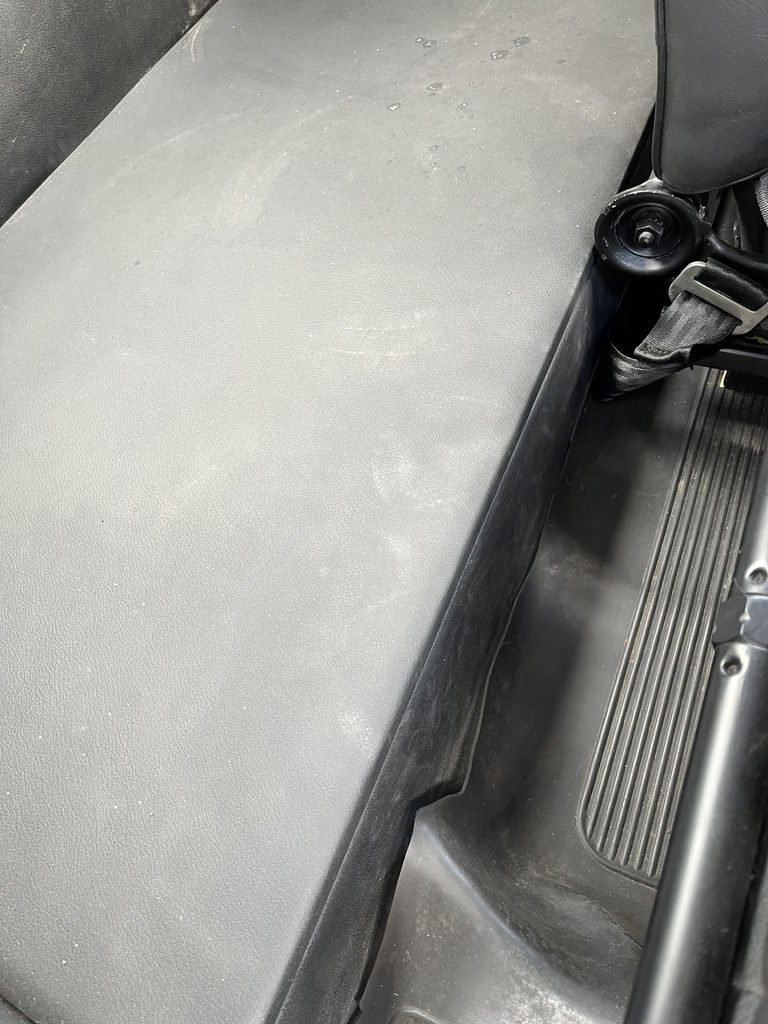Description
DKW 1000S Cabriolet | 1959
Highlights:
-
- Rare DKW 1000S professionally converted to cabriolet in 1960
- Restored over five years, including engine and bodywork
- TÜV inspection valid until May 2027
- Well-maintained two-stroke engine
- Includes a large stock of spare parts
The seller offers for sale this 1959 DKW 1000S Cabriolet, a distinctive German classic that began life as a standard saloon before being professionally converted to a cabriolet in 1960. This particular car has a rich documented history, first registered in Augsburg, Germany, and subsequently owned in Munich through several changes of hands until it was decommissioned in 1972. It remained dormant for decades until it was purchased in 2004 by a new owner in Elmshorn, Germany, who undertook a thorough, five-year restoration, culminating in its first new TÜV inspection in 2009.
The restoration was comprehensive, addressing both mechanical and cosmetic aspects of the vehicle. The body was stripped, rustproofed, and repainted, while the engine was overhauled. Since its restoration, the car has participated in various classic car shows and rallies, showcasing its quality and unique presence among vintage vehicles. Following the passing of its previous owner in 2019, the car was acquired by the current seller in 2022. To ensure roadworthiness, it underwent further repairs in Mittenwald, Germany, and most recently passed a new TÜV inspection in May 2025, valid until May 2027.
The paintwork is described as very good, with the exception of a small scratch on the right front fender. The chrome bumpers at the front and rear show some peeling and wear, reflecting mild aging. The heavy-duty canvas convertible roof is noted to be in very good condition, suggesting careful preservation and limited exposure to adverse weather. No rust issues are present, a significant positive for a vehicle of this era, particularly given the extensive rustproofing during restoration.
Inside, the DKW presents in very good condition with new upholstery, clean door panels, and a restored dashboard. Chrome details within the cabin show some light tarnishing, such as around the roof latches and vent windows, typical for a vehicle of this vintage. The tracks for the front seats were adjusted to improve legroom and to accommodate seatbelts, enhancing comfort and safety. The rear compartment serves as a cargo area rather than seating space, reflecting the custom cabriolet conversion. The rubber floor mat could benefit from a refresh to align with the otherwise tidy interior.
Mechanically, the vehicle is reported to be solid and roadworthy. It features a 981 cc three-cylinder two-stroke engine, a hallmark of DKW engineering. The engine starts reliably and the gearbox generally shifts smoothly, though transitions from first to second gear demand a practiced touch, and downshifting into first requires the car to be stationary, as the gears are not synchronized. The seller notes that the car drives well, especially for relaxed cruising rather than high-speed travel, preferring to keep it under 100 km/h. All lights, indicators, and other electrical systems are in working order, and there is no rust or accident damage reported.
The DKW 1000S, part of Auto Union’s lineage, holds a special place in automotive history as one of the last significant two-stroke vehicles produced by the brand. Following World War II, DKW became known for small, innovative cars featuring two-stroke engines, a design approach that offered simplicity and relatively good performance despite modest engine displacement. The 1000S was introduced as a refined model within the F93 and F94 series, representing DKW’s ambition to offer more comfort and sophistication in the small-car market.
Though originally a saloon, conversions to cabriolet configurations were undertaken by specialized coachbuilders and authorized DKW dealers like Fa. Wimmer & Co. These conversions were meticulously executed, retaining much of the car’s original structural integrity while delivering the open-air experience that appealed to post-war European motorists. The 1000S’s lightweight construction and lively engine made it a popular choice for drivers seeking economical yet spirited motoring.
The two-stroke engine, while an unusual feature by today’s standards, offered several advantages at the time, including simplicity of design, fewer moving parts, and a characteristic engine note that became synonymous with DKW vehicles. However, it also required owners to mix oil with petrol for lubrication—a quirk that persists today for enthusiasts maintaining these classics. The driving experience of a DKW two-stroke remains unique, with its free-revving engine and distinctive sound, evoking a bygone era of motoring.
Over time, the rarity of these cars has increased, particularly cabriolet versions, as many succumbed to rust or were scrapped when two-stroke technology fell out of favour. Today, survivors like this one attract collectors interested in German automotive heritage and the distinctive characteristics of pre-Audi Auto Union vehicles. Spare parts can sometimes be a challenge, making the inclusion of the seller’s extensive collection of spare components—from dashboard instruments to engine parts—a valuable asset for the next owner.
This DKW 1000S Cabriolet offers an opportunity to own a piece of automotive history that combines rarity, charm, and a carefully documented restoration. It is suited for leisurely drives and classic car events rather than high-speed travel, embodying a relaxed and nostalgic motoring experience. For those who appreciate unique engineering solutions and classic German craftsmanship, this car presents an intriguing proposition.
Condition of the Bodywork and Paint
4. Very Good: Small dents or scratches; may require minimal bodywork or paint correction.
Condition of the Interior
4. Very Good: Clean with minimal wear; may need minor replacements for small missing or broken parts.
Technical Condition
4. Very Good: Mechanically solid, with possible minor maintenance required.
Overall Condition
4. Very Good Condition: Shows only minimal wear and is ready to drive at any time.
This item is sold on an as-is basis. The condition of this item is the opinion of the seller and may differ from your own opinion. Photos and descriptions of the listing are for information purposes only.
We encourage all potential bidders to inspect the vehicle before placing a bid. Please contact us by phone or email to schedule an appointment.
All auction cars offered have a reserve price. You have only won the item if the seller accepts your bid.
Price changes and errors reserved. The 14-day right of withdrawal does not apply to this auction.
This car is currently located in Bavaria, Germany.
This car drives, brakes and shifts.
The car has a German registration. The buyer is responsible for registration in his own country and responsible for delivery and collection of any vehicle purchased at the auction.
The description of this car is, to the best of the seller’s knowledge, accurate and not misleading. Route 66 Auctions requests a range of detail about the car from the seller and performs a level of due diligence. However, potential buyers must independently satisfy themselves as to the accuracy of the description. We strongly advise potential buyers to view or arrange inspections as well as conduct any research they feel is necessary before committing to bid or buy.
Please note that it is not uncommon for classic or collectible cars to have received cosmetic repairs in the past, to rectify damage or refresh appearance, and this work may be hard to see even upon visual inspection. Unless there is an explicit statement by the seller to the contrary, please assume that any vehicle could have had bodywork or paintwork. Photographs may not reflect the exact true colour or exact full condition of the vehicle. It is a bidder’s responsibility to assure themselves of the colour and condition of a vehicle, including its interior and the existence of any remedial bodywork or paintwork, before committing to bid or buy.

